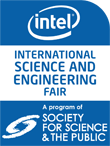Revised July 2012
Note to Teachers: NIDA sponsors scientists in most areas of the country who are available as a resource on addiction science. If you would like to be linked with one of these scientists, please contact Dr. Teresa Levitin (tlevitin@nida.nih.gov) or Carol Krause (krausec@nida.nih.gov.)
What are Addiction Science Projects?
The National Institute on Drug Abuse (NIDA) supports most of the world's research on addiction, working with some of the world's foremost researchers in neuroscience, behavior, pharmacology, physiology, genetics, epidemiology and medicine. Intel International Science and Engineering Fair (Intel ISEF) categories that are likely to include Addiction Science projects include: Behavioral and Social Sciences (Code: BE); Medicine &Amp; Health Sciences (Code: ME); and Cellular and Molecular Biology (Code: CB). However, any science fair project that contributes to our knowledge of addiction and its health consequences will be considered for the NIDA Science Fair Award.
All projects eligible for a NIDA Science Fair award must be conducted under the supervision of a science teacher or science mentor deemed qualified by a science teacher. All ISEF rules for experiments apply (see the ISEF Rules Wizard at http://apps.societyforscience.org/isef/students/wizard/index.asp.)
What ISEF Study Areas Apply to the NIDA Science Fair Awards?
Below are sample study areas from the ISEF Web site that fit well with addiction science.
Behavioral and Social Sciences (Code: BE)
The science or study of the thought processes and behavior of humans and other animals in their interactions with the environment studied through observational and experimental methods.
Subcategories:
CLIN: Clinical and Developmental Psychology
The study and treatment of emotional or behavioral disorders. Developmental psychology is concerned with the study of progressive behavioral changes in an individual from birth until death.
COG: Cognitive, Brain and Cognition, Neuropsychology
The study of cognition, the mental processes that underlie behavior, including thinking, deciding, reasoning, motivation and emotion. Neuropsychology studies the relationship between the nervous system, especially the brain, and cerebral or mental functions such as language, memory, and perception.
PHY: Physiological Psychology
The study of the biological and physiological basis of behavior.
SOC: Sociology and Social Psychology; Industrial/Organizational Psychology
The study of human social behavior, especially the study of the origins, organization, institutions, and development of human society. Sociology is concerned with all group activities-economic, social, political, and religious.
Cellular and Molecular Biology (Code: CB)
The study of the structure and formation of cells.
Subcategories:
CELL: Cellular Biology
The study of the organization and functioning of the individual cell.
GENE: Genetics
The study of molecular genetics focusing on the structure and function of genes at a molecular level.
IMM: Immunology
The study of the structure and function of the immune system, innate and acquired immunity, and laboratory techniques involving the interaction of antigens with antibodies.
MOLE: Molecular Biology
The study of biology at the molecular level. Chiefly concerns itself with understanding the interactions between the various systems of a cell, including the interrelationships of DNA, RNA and protein synthesis and learning how these interactions are regulated.
Medicine & Health Sciences (Code: ME)
The science of diagnosing, treating, or preventing disease and other damage to the body or mind.
Subcategories:
DIS: Disease Diagnosis and Treatment
The act or process of identifying or determining the nature and cause of a disease or injury through evaluation of patient history, examination, and review of laboratory data. Administration or application of remedies to a patient for a disease or injury; medicinal or surgical management; therapy.
EPID: Epidemiology
The study of the causes, distribution, and control of disease in populations. Epidemiologists, using sophisticated statistical analyses, field investigations, and complex laboratory techniques, investigate the cause of a disease, its distribution (geographic, ecological, and ethnic), method of spread, and measures for control and prevention.
GENE: Genetics
The study of heredity, especially the mechanisms of hereditary transmission and the variation of inherited traits among similar or related organisms.
MOLE: Molecular Biology of Diseases
The study of diseases at the molecular level.
PHYS: Physiology and Pathophysiology
The science of the mechanical, physical, and biochemical functions of normal tissues or organs. Pathophysiology is the study of the disturbance of normal mechanical, physical, and biochemical functions that a disease causes, or that cause diseases.
Does NIDA Have Suggestions for Project Topics?
This is the first year NIDA has offered ISEF awards. However, we have reviewed titles of winning projects from 2006, so we can offer examples of those that might have been eligible for NIDA Addiction Science Awards.
- BE001 The Effect of Gender on Physician and Pharmacist Attitude Toward Pain and the Use of Narcotic Analgesics
- BE022 Does the Brain Compute Mathematical Risk? The Influence of Risk and Reward on the Economic Behavior of Humans
- BE023 Pher or UnPher? Pheromone Influence on Human Preference and the Effect of Cigarette Smoking
- BE026 Effects of Playing Different Video Game Genres on Geometric, Spatial and Verbal Reasoning Skills of Adolescents
- BE029 Who's in Charge? The Effect of Subliminal Messages on the Human Mind
- BE034 Adolescent Tanning as Dependent Behavior
- BE039 Psycho-social Effects Caused by Paternal Absence on Children 7-11 Years Old with Solution by Means of Exercises that Stimulate Dialogue
- BE040 Personality and Success in Education
- BE052 Attitudes, Exercise and Stress: A Longitudinal Study of Dental Students, Year Three
- BE306T A Study of Executive Functions and Academic Ability in Teenagers
- BE307T Red Bull Gives You Wings
- BE308T Making the Transition: Predicting High School Success
- CB006 Effects of Cigarette Smoke on Inflammatory and Antimicrobial Activities of Phagocytes Against Periodontal Pathogens
- CB023 Gene Expression Changes in Parkinson's Disease: Genes Mediating alpha-synuclein Toxicity in a Drosophila melanogaster Model
- ME022 Role of Estrogen Receptor Beta (ERbeta) on Opioids and Opioid-Related Peptides in the Rodent Dorsal Hippocampal Formation
- ME064 Dendrimer-based Nanodevices for Drug Delivery Across the Blood Brain Barrier
Award Winners
More Information
Awards (sponsored by Friends of NIDA)
First Place Award - $2500
Second Place Award - $1500
Third Place Award - $1000
Questions?
Contact the NIDA Communications Director.







